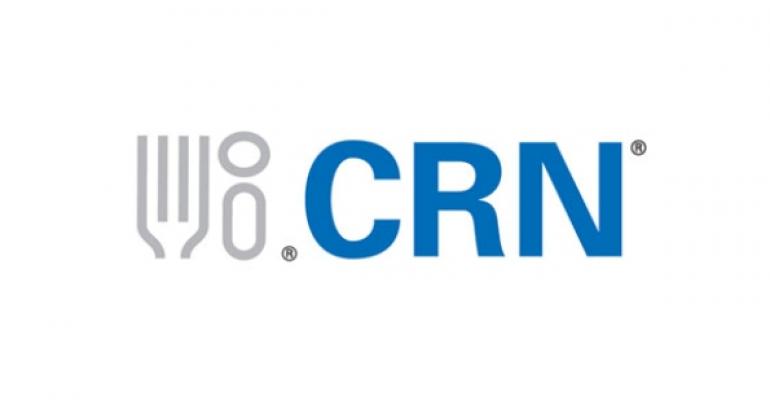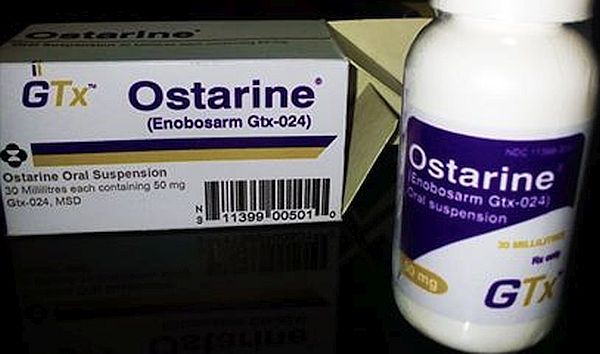SARMs (selective androgen receptor modulators) have illegally been sold as dietary supplements by various unscrupulous sports nutrition companies for the past few years in the United States. Some supplement companies seem willing to risk selling practically any unapproved new drug as long as it isn’t classified as a Controlled Substance.
And why not? The U.S. Food and Drug Administration (FDA) has been exceedingly slow in doing much of anything to enforce regulations in the industry. The FDA only recently sent out a few warning letters to some of the supplement companies guilty of selling SARMs.
“We are extremely concerned about unscrupulous companies marketing body-building products with potentially dangerous ingredients. Body-building products that contain selective androgen receptor modulators, or SARMs, have not been approved by the FDA and are associated with serious safety concerns, including potential to increase the risk of heart attack or stroke and life threatening reactions like liver damage,” said Donald Ashley, director of the Office of Compliance in the FDA’s Center for Drug Evaluation and Research.
Many of the supplement companies selling SARMs had previously illegally sold synthetic steroids masquerading as dietary supplements. They know from experience that the resources of the FDA are stretched too thin and the chances that they can get away with selling unapproved new drugs, whether it is synthetic steroids or SARMs, are very much in their favor. Nothing happened to them when they illegally sold synthetic steroids. So nothing will happen to them for illegally selling SARMs.
While this is good news for the individual supplement companies willing to take the risk, it is bad news for the overall dietary supplement industry. The supplement industry is projected to produce annual revenues of over $60 billion over the new few years. Given the rampant availability of synthetic steroids and SARMs and other illegal drugs sold over-the-counter, many legislators want to crack down on the 1990s era law that made this lucrative industry possible – the Dietary Supplement Health and Education Act (DSHEA).
The dismantling of DSHEA would have devastating effects of the supplement industry. This is why a powerful Washington D.C.-based lobbying group representing the dietary supplement industry is moving fast and hard to distance itself from all the supplement companies selling SARMs.
The Council for Responsble Nutrition (CRN), a trade association and lobbying group representing over 100 companies that manufacture supplements and other dietary ingredients, wants to clean up the shady industry’s reputation. CRN wants to show legislators that the industry can self-regulate without the need for DSHEA modifications.
“We always try to remind the industry that this is everyone’s problem,” said CRN Chief Executive Officer Steve Mister. “Responsible companies are not the ones putting SARMs into the marketplace. But all it takes is one serious adverse event. Wouldn’t it be awful if the industry gets a black eye because the person says, ‘Well, I got it from my supplement.’”
The top item on CRN’s agenda is quite simply to throw the supplement companies selling SARMs under the bus. CRN blames these companies for putting the entire industry at risk. And given the fact that few SARMS vendors fear enforcement by the FDA, CRN wants to shift the enforcement responsibility from the FDA to the U.S. Drug Enforcement Administration (DEA).
“On the supply side the effort is to give the DEA more authority to go after these products quicker,” Mister said. “We need to recognize that there is a demand side solution here as well, which is helping consumers understand that there is danger in using these products.”
Quite simply, CRN wants to reclassify SARMs as Schedule III Controlled Substances. This is the same category that includes anabolic steroids. As a Controlled Substances, SARMs would be subject to investigation and enforcement by the DEA. The criminal penalties for selling Scheduled III drugs would be far more serious than selling unapproved new drugs. CRN hopes that this increased deterrent would keep bad actors out of the dietary supplement industry.
But really, the loss of SARMs isn’t really such a bad thing. SARMs are known to most hardcore bodybuilders simply as muscle-building drugs with most of the side effects but few of the results of real anabolic steroids. In other words, SARMs are anabolic steroids that suck. Good riddance.

SARMs may soon be reclassified as Controlled Substances if Council for Responsible Nutrition gets what it wants

